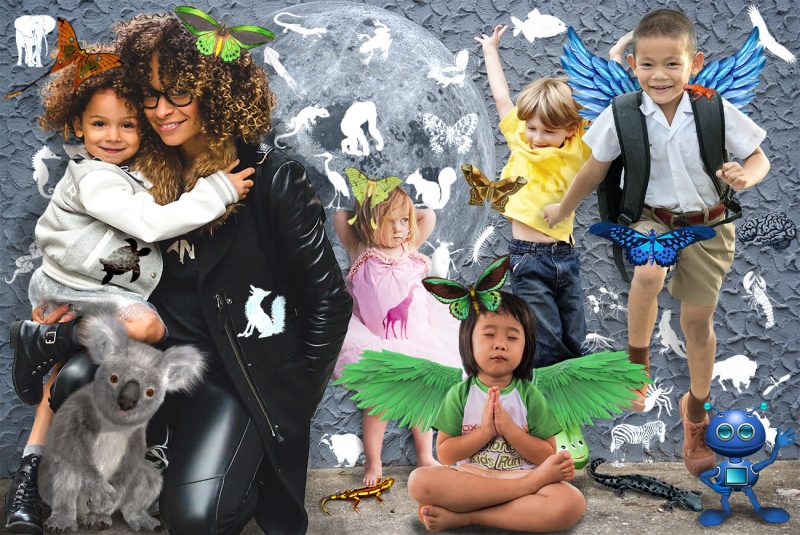
Learning and Teaching
I will start with learning. One of the tragic things about this pandemic is that our kids are missing out on education. This can’t be helped — schools are hotbeds for viruses. It is common wisdom that a new elementary school teacher needs to survive the first few years of being continuously ill — little ones love to share hugs and kisses and snot, all in equal measure. But after a few years of coming to school every day, teachers develop monster immune systems…parents not so much. So schools had to be closed — the world has no immunity to COVID 19. And the only way things get back to normal is when we ALL get immunity to this virus. We can get it by getting sick or by getting a vaccine. The vaccine is still a year away if we are lucky. Acquiring immunity through illness is like playing Russian Roulette — you might be one of the lucky ones or you might become a physical or cognitive cripple…and that’s forever! So schools will be closed for a very long time. And parents are stuck at home, homeschooling their children — not the job anyone really signed up for or trained.
The other day, I saw a newspaper article headline (New York Times): Nearly half of fathers believe they are the primary educators of their children at home…only 3% of mothers believe that fathers are the primary educators of their children at home. The headline is sure to bring a laugh. But beneath the surface are households full of very painful experiences. Even for parents that can work from home and thus don’t have to worry about leaving their kids unattended, doing the jobs of teachers in addition to their own jobs is an extraordinary hard task. This is on top of requiring a computer for each child in addition to each adult and enough bandwidth to satisfy everyone’s needs. And these are the lucky households. And even in these fortunate families with enough resources for all or nearly all, the expectation that a first or second grader would just sit and interact with their teacher online (as the teacher splits her attention among 30 other kids) is just crazy. There has to be a better way, since we are in it for a very long haul.
About two decades ago, my husband and I were working on developing educational materials for schools and museums around the world. We did so for years; we tested all of the materials at schools and museums. While museums got to use our curriculum, we own all of the copyright on all of our content. We called these materials Supermarket Science — all of these activities and learning experiences can be done with local neighborhood resources and on the cheap. By late March — mid full lockdown — I decided to put all of our materials up online and make them available to teachers and parents and students for free. I’ve been working like mad to repackage all of the content in a way to make it work. My husband and partner labored for weeks to make the underlying tech work. And we now have about 15% of our content up and available. It’s not perfect — those who rush, make stupid mistakes. But I wanted to help.
These materials can be downloaded, printed, and used without a computer. There’s tons to do. There is plenty of support for parents and teachers so that they can use these materials effectively. These would work with families that have multiple kids in a wide age range. They would work for many different interests and a wide range of abilities. Though right now, I just managed to get the biology section up, more is coming soon. So, please, login, download, use. Tell me what works, share your stories and photos. Let me know if you spot an error and I will try to fix it ASAP.
Reading and Writing
I think lots of people read as a form of escapism — they want to be completely enveloped into a magical story full of wonderful people, living exciting lives. This is probably even more true during a global pandemic. Reading is an immersive experience. But in addition to an escape, I think people also read to experience something new, to learn something outside of their daily lives, to feel something different. I embed at least some real science into all of my stories. I find that the easiest way to learn something new is through reading fiction, by forming emotional connections to fictional characters and their dilemmas. Those dilemmas don’t have to be written at the first-grade level. Readers get complex ideas; they want to understand the world around them. I do; I’m a reader, too. I value books that not only tell a good story but also give me something new and juicy to chew on. I love that! I write for readers who love those kinds of books, too.
The fictional characters in the stories I write have a lot more power over their fate than I thought they would. This revelation blew me away. I always knew that stories changed when they were written down in a tangible form. That’s true for paintings, too. What’s in my head is not necessarily going to be what’s on paper. But it surprised me the extent to which my characters take on a life of their own. Oh I can try to push them in the direction I thought I wanted them to evolve, but it never works out. When I push, the characters rebel. When a hero of the book is well-drawn, she doesn’t allow the writer to pull strings for her. And so the story tends to change…sometimes drastically. Is that just my writing quirk? I don’t know. Perhaps other writers fight with their characters, too. Somehow I think it is a very common phenomenon.
Since writing my first novel, I’ve focused on developing strong characters, interesting plots, and ideas that are heavily influenced by real science and current events. Humans learn best when information is wrapped in a compelling story. I also want to write about people that are not the usual heroes of books — homeless kids, misfits, grandmothers, mobility-impaired, autistic, the underclass of our society, the forgotten. Fiction is great at developing empathy. I want to turn the full power of fiction into an empathy engine! Sounds a bit preachy, I know, but I think my stories are good and fun to read in addition to being meaningful.
I write science fiction and magical realism. And I just saw that Phys.org — a site dedicated to teaching physics — just wrote that “Science fiction builds mental resiliency in young readers”! Awesome! Obviously, I’m a believer! But I also believe that, regardless of genre, a story needs characters that are believable and to whom people can relate. I find that the books I like least have one thing in common — characters that are not sympathetic. If I don’t like the main character(s), I don’t enjoy the book. Yes, there are anti-hero stories, but those don’t resonate as much for me.
When we read, we place ourselves into the fictional world of the book. We try on for size the problems and joys the characters experience in the story. If there is no one in a book worth caring about, then the story is ultimately a failure, in my opinion. That’s true for movies and TV shows, too. People like to read about people they admire or empathize with. Take that away, and what is left are some flat caricatures of people, explosions, and perhaps some interesting locations. That’s not enough to hold the reader’s interest, certainly not mine.
My stories usually start with just a tiny idea and then grow as I collect research around that topic. A few years down the line, the little clump of thoughts jells into an idea for a book. But I never know if the book will become a full-length novel or a novella or even a longish short story. I’m a “pantser” — I write without an outline, by the seat-of-my-pants. I just have a ton of research and random thoughts written down on little notes in my note-taking software. By the time I actually start writing a new novel, I’ve usually spent a year or so taking notes and doing research. I tend to have a general idea of what the book will be about, but I have to feel my way towards the resolution of a story. I write to find out what happens next! Once I know my characters and understand their predicament, the story is written by them. They decide what they want to do and how to proceed and how to solve problems that I throw at them. I know this sounds crazy, but it works well for me. Still, the more research I do, the better the outcome. But it is always a mystery how it all works out. I’m always surprised by the end of the story — the finished book is nothing like I’ve imaged it…but it does contain all of the elements of my research for the story.
That said, I don’t have a story or a book to share with you this time — I’ve been too busy with Supermarket Science to get to anything else. I have a novella and a full novel back from the editor and ready for me to work on them. So as soon as I get at least to 50% of my materials published for people to use, I will start to split my time on writing too — I really really miss it.
If you have kids in elementary and secondary schools, please take a look at SupermarketScience.com. If you know of someone who might find these materials useful, please pass it on. Thank you!

